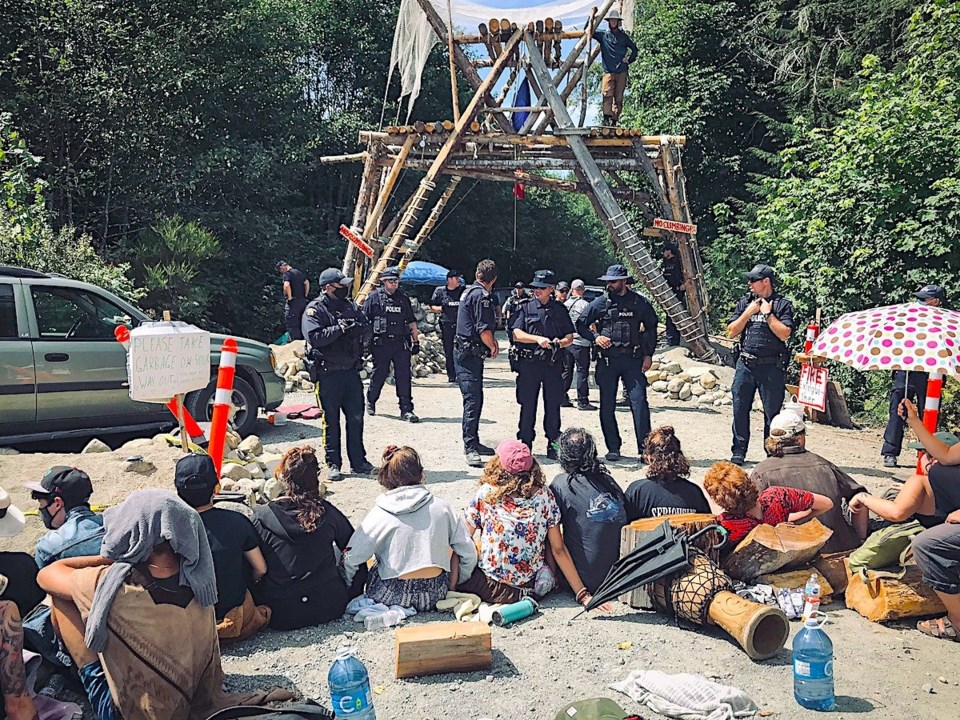The issue that most clearly shows a fundamental difference between the current version of an NDP government and the 1990s version of an NDP government comes to the front of the legislature every Wednesday afternoon.
A small knot of people gathers to protest the logging of old growth timber, particularly in the nearby Fairy Creek area.
When the legislature resumed sitting last week, a larger crowd of about 125 people protesting the same logging blocked all but one of the entrances to the legislature itself.
It was essentially a non-event as MLAs, staff and visitors came and went through the main door throughout the day. The NDP cabinet met that day, the legislature conducted its business as usual, and the protesters shrunk in number throughout the afternoon. By 6:30, it was all over and everyone went home.
This is all in stark contrast to the environmentalists protesting logging practices under the NDP government of the 1990s.
The so-called “War of the Woods” in Clayoquot Sound on Vancouver Island saw mass arrests, thousands of people protesting regularly at the legislature (they actually broke through security during the reading of a Throne Speech, stormed into the legislature upper rotunda, broke a guard’s hip and smashed the plate-glass window on the front door of the chamber).
Back then, the NDP government found itself hitting the panic button over and over again as the protests continued. Members of the caucus were upset about all the arrests and the party was worried it was losing many of its traditional supporters.
The NDP government back then was constantly on the defensive when it came to fighting with the environmental movement.
This is simply not happening today.
The current NDP government has offered a collective shrug to the Fairy Creek protesters. A giant “meh.”
Even though more than 1,000 people have been arrested (that is more than the number of arrests at Clayoquot Sound) for defying an injunction against the protests in the forests, it has had little impact on the NDP government.
Other than agreeing to defer the logging of some old growth timber, the government has had little response to the ongoing protest, other than Premier John Horgan regularly telling protesters to leave the area and to respect the local First Nations’ territory.
And that brings us to the key difference between the 1990s and the present day.
The Horgan government has formally enshrined into law the United Nations Declaration of the Rights of Indigenous Peoples (UINDRIP), which greatly enhances First Nations’ rights.
Fairy Creek is the traditional territory of the Pacheedaht First Nations, and it strongly supports local logging operations as they provide vitally important economic benefits for its members.
Six times the Pacheedaht have asked the protesters to leave, including on national Truth and Reconciliation Day. Each request has been refused.
Unlike its 1990s predecessor, the NDP government has put First Nations’ rights at the top of its priority list, well above any well-funded environmental protest campaign.
As a result, unless the Pacheedaht change their position (highly unlikely) the NDP government will remain steadfast in its support for the current position, no matter how many of those Wednesday afternoon gatherings occur.
Keith Baldrey is chief political reporter for Global BC.


